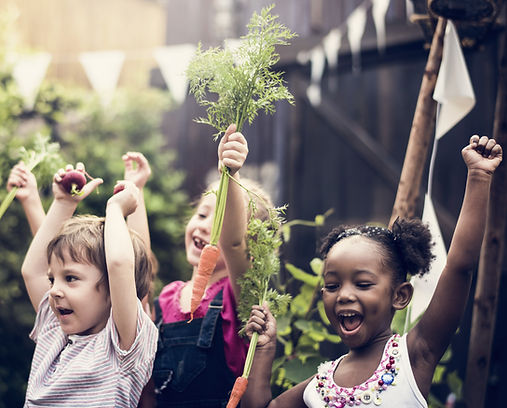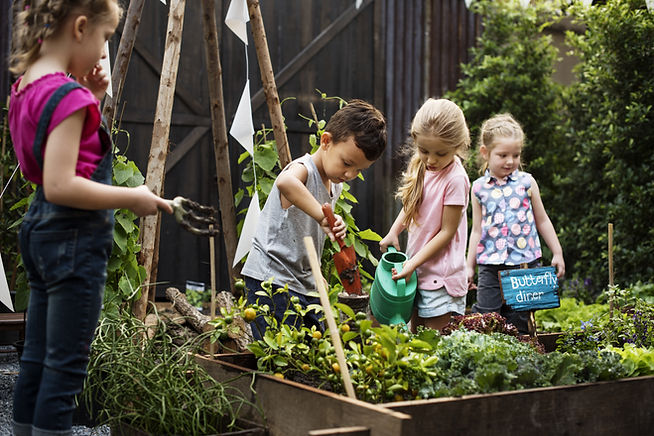School garden program
School gardens play a crucial role in education, fostering a range of benefits for students, educators, and the broader community.
So why invest in a school garden?
Life Skills Development:
-
Gardening teaches valuable life skills such as responsibility, patience, teamwork, and problem-solving.
Hands-On Learning:
-
School gardens provide students with tangible, hands-on learning experiences. Engaging with the natural world allows for a more profound understanding of concepts related to science, biology, and ecology.
Environmental Stewardship:
-
School gardens cultivate a sense of environmental stewardship and a connection to nature. Students develop an appreciation for the environment and a desire to protect natural resources.
Improved Academic Performance:
-
Studies have shown that students engaged in garden-based learning often exhibit improved academic performance. The hands-on nature of gardening can enhance critical thinking skills and make abstract concepts more concrete.


Nutrition Education:
-
School gardens offer a practical platform for teaching nutrition and healthy eating habits. Students can learn about the origin of food, the importance of fresh produce, and the benefits of a balanced diet.
Physical Activity and Well-being:
-
Students engage in tasks that involve movement, leading to increased physical fitness and a positive impact on mental health.
Community Engagement:
-
School gardens often serve as focal points for community engagement. Parents, teachers, and community members can collaborate in garden activities, fostering a sense of community and shared responsibility.
Cultural Connections:
-
Gardens provide a space for exploring cultural connections to food and agriculture. Students may learn about traditional crops, farming practices, and the significance of agriculture in different cultures.
Career Exploration:
-
School gardens can introduce students to various careers related to agriculture, horticulture, and environmental science.